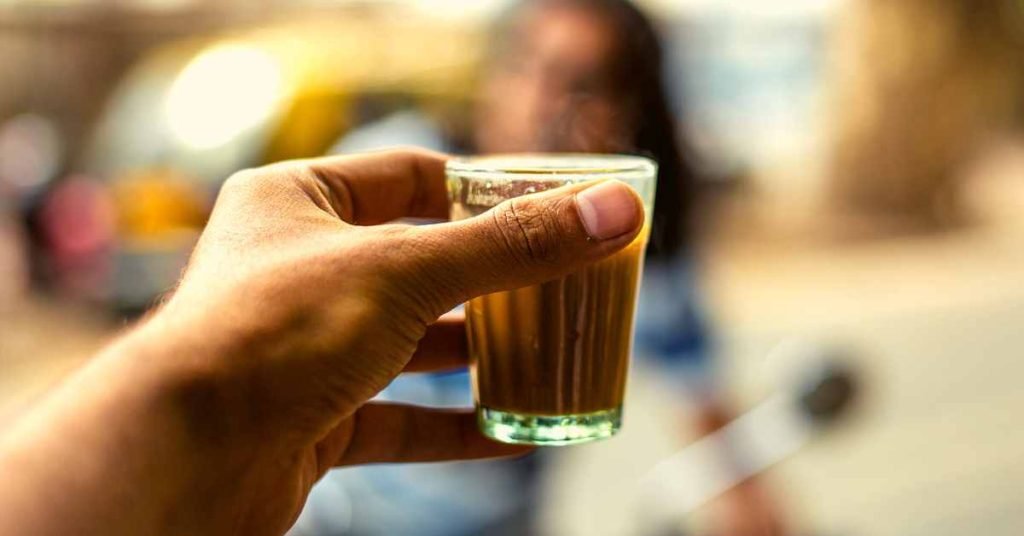Tea is the most famous beverage in India. The country consumes around 840,000 tonnes of tea per year, which is almost 2 lb per capita.
Indian tea is called Chai and it’s served literally in every corner of the country.
Masala is the most popular tea in India, while Assam, Darjeeling, and Nilgiri are the next ones on the list.
History of Indian Chai

According to a legend, Chai exists in India since 5,000 years ago.
It started as a special medicinal beverage implemented in the Ayurvedic practice that mixes herbs and spices for medicinal use.
It didn’t take a long time until it became widely accepted by the people, turning into the most popular national drink.
However, Chai got commercialized when the Brits started consuming it around the mid-1800s.
Made from Camellia Sinensis tea leaves, Indian Chai offers a potent kick and it’s commonly consumed with sugar.
Today, an average person in India drinks three cups of Chai per day.
Tea Culture in India
Chai is sold on the streets, in tea houses, coffee shops, restaurants, and everywhere you can imagine.
The majority add sugar to their warm beverage while a splash of buffalo milk is also common in the original recipe.
However, the Western variations of Chai include cow, soy, rice, or almond milk.

When offered a Chai at someone else’s place, it’s recommended to accept it and express gratitude.
Indian Chai is a symbol of hospitality and respect rather than just a warm cup of tea.
The base for Chai is the native Assam or Darjeeling, depending on the region.
Ginger, cloves, cardamom, black peppercorns, and cinnamon are the most common spices used to prepare a common Indian Chai.
Indian Chai can be steeped in water, in milk, or in a water/milk mix. You should never boil the milk for the milk-only version or it will have a burnt taste.
High in caffeine, Chai makes a perfect replacement for people transitioning from coffee to tea.
MEDICAL DISCLAIMER
Itsnevernotteatime.com cannot and does not contain medical/health advice. The medical/health information is provided for general and educational purposes only and is not a substitute for professional advice.




